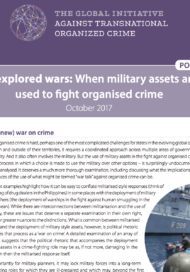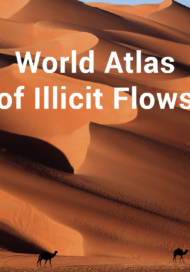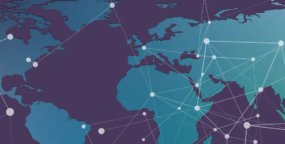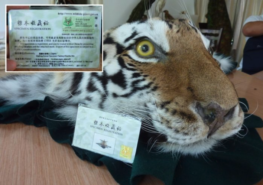Posted on 12 Feb 2019
Looking at the current state of international affairs it is difficult to escape the feeling that the world is not just witnessing a series of smaller and bigger crises. Rather, the entire liberal international order appears to be falling apart – nothing will we be as it once was. Since the collapse of the Soviet Union, the global security landscape has never been more dangerous. We are experiencing an epochal shift, as one era is coming to an end, and for now only rough outlines of a new geopolitical age are visible. Although some states are committed to maintaining the liberal international order, it is questionable whether they – often distracted by other domestic and foreign policy challenges – are able to assume this role.
It is in this context that the Munich Security Conference publishes its annual Munich Security Report (download the report as a PDF here). Titled “The Great Puzzle: Who will Pick Up the Pieces?” the Munich Security Report 2019 provides an overview of major security policy challenges and features insightful data, analyses, maps and infographics. As an impulse for the 55th edition of the Munich Security Conference, the Munich Security Report serves as background reading for conference participants, but is also made available to the general public. The last report was downloaded more than 40,000 times and received significant press coverage in both German and international media. The discussion on Twitter will happen under #MSCreport.
This year’s report analyses the reshuffling of core pieces of the international order. Besides looking at major powers like the United States, China and Russia, the report also highlights actors of the “second row”: liberal democracies such as France, Germany, the United Kingdom, Canada and Japan. In addition, the report assesses current security policy developments in selected regions such as in the Western Balkans, in the Sahel region and in the Middle East. It examines the global challenge to arms control against the background of the recently suspended INF Treaty and emerging technologies such as hypersonic weapons. Other global issues covered are the security policy implications of current developments in the areas of international trade, transnational organized crime and artificial intelligence.
The Munich Security Report features a number of exclusive and unpublished materials. For the preparation of the report, the Munich Security Conference Foundation has collaborated with renowned partner institutions, including the International Institute for Strategic Studies (IISS), Pew Research Center, the German Aerospace Center (DLR), the Global Public Policy Institute (GPPi), Oxford Economics, McKinsey & Company, the Mercator Institute for China Studies (MERICS), the Friedrich Ebert Foundation Regional Office for Cooperation and Peace in Europe and the Peterson Institute for International Economics (PIIE).
SELECTED HIGHLIGHTS OF THE REPORT:
- A previously unpublished opinion poll by the Pew Research Center shows that traditional allies of the United States perceive America’s power and influence as a major threat to their country, also when compared to China and Russia.
- A map by the Jacques Delors Institute Berlin displays different formats of European defence cooperation and contrasts German-French approaches in this context.
- A previously unpublished opinion poll by the Friedrich Ebert Foundation offers new perspectives on the conflict in and around Ukraine and other issues concerning European security.
- An exclusive map provided by the International Institute for Strategic Studies illustrates the presence of Russian armed forces in Crimea and the possible range of missile systems stationed on the peninsula.
- Previously unpublished data by the Global Public Policy Institute shows that the Assad regime conducted more than 280 chemical weapons attacks in the Syrian civil war between November 2012 and November 2018.
- A map by Rhipto Norwegian Center for Global Analyses provides an overview of transnational smuggling routes through the African continent.



